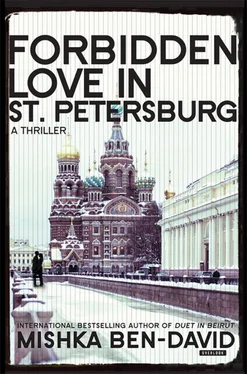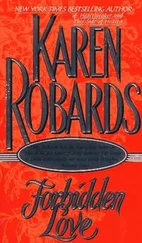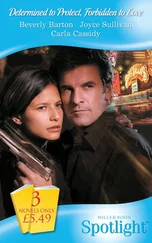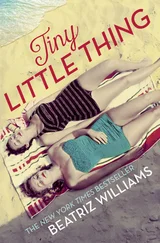In my opinion this is all much ado about nothing, Alex said. Paul wasn’t the Don Juan of the century and without doubt the woman he’s shacked up with won’t be Ms Russia or Ms St Petersburg. How long will he stay with her before he realizes that he’s made the mistake of his life and come back to us on all fours begging for forgiveness? And how long will she stay with him once we’ve blocked his sources of finance? And even if I’m wrong–where’s the damage? I don’t imagine he will have introduced himself to her as a Mossad agent.
I was surprised that internal transcripts, taken down by hand by Udi’s secretary, didn’t omit such personal comments. Apparently, the story of my love affair was on everybody’s lips. But Udi, I was glad to learn, stayed out of it.
Enough Alex, we’re talking about one of us and I ask you to respect that.
He turned to Levanon. How many available men do you have?
Here in Israel there are, at the moment, four men I could send out overnight. I can increase that number with people from Europe at the expense of their vacation time. Most of the operational teams are due to return here because it’s Christmas. In St Petersburg offices won’t be open as people are on holiday. In my opinion we’ll be running the guys around for no good reason.
Let’s be accurate, Alex said. Christmas for the Russian Orthodox Church is the night between the 6 thand 7 thof January, but the winter festivities get going around about the 25 thof December.
What does that mean for high street businesses and offices? Udi asked.
The big party is at the end of the civil year on January 1 st. During the Soviet period they wanted to eradicate every vestige of religious practice and symbolism so that became the central and almost only festive event. The Russians go on vacation on the 31 st, but foreign tourists arrive towards the 25 thof December, and that’s when the winter festivities begin in St Petersburg. Now there’s a return to religion, so on the night between the 6 thand 7 thof January there are Masses and they’re on holiday on and off during this whole period. Sometimes this even continues until the 13 th–the Russian New Year.
If that’s the case get the four guys ready to leave tomorrow, Udi instructed. What about intelligence? He turned to ask the division’s head of intelligence.
We prepared the initial material for Paul when he was about to leave, said Moshiko, and we also briefed Don before his departure. Since then Noga, one of my department workers, has put together a well-researched dossier with the help of satellite photos, some video clips of St Petersburg which she got hold of, photographs that she found on various websites, and sightseeing routes around the city taken from guide books. Together with Eli we also prepared a detailed briefing on the various security forces there.
It should be regarded as a semi-target country, you understand? Udi clarified. It may be that St Petersburg looks like Paris or Amsterdam but it has to be treated with the utmost care, like operating in a soft target.
That’s clear, Moshiko said, that’s also what the briefing says.
Udi summed up: I want the guys to get an intelligence briefing before the end of the day and be prepared to leave tomorrow morning. Levanon, see to it that they arrive separately from different countries and that they stay in different hotels.
I’ll send them in two pairs, Levanon said. A European arriving on his own at Christmas arouses suspicion.
During those three days Anna and I also found the shop we wanted to rent. We looked for somewhere on our island, preferably reachable on line number 7 which passed close to our apartment.
In the end the find came out of the blue and in a charming location. Between the wide Bolshoi Prospekt and Sredni Prospekt–the middle avenue parallel to Bolshoi–the cross streets go by numbers. Streets Six and Seven have been linked up to form a spacious pedestrian zone with two rows of trees in the middle. And all along it there are shops, restaurants, and cafés. Only two churches on the corner of the street have kept a certain Russianness. The rest could have been lifted straight from the bustling city centres of Western Europe. In the middle of the pedestrian zone, on the ground floor of one of the most beautiful buildings there, we found a bookshop with a sign on it saying for sale or rent. Our joy knew no bounds and we were quick to commit even though the price was high. For the locals, so it seemed, this was their favourite spot. The shop’s proximity to the university undoubtedly attracted many students and the owner of the shop promised that this was a place that even tourists came to.
The attempt to register the property in the name of the estate agent didn’t succeed this time because it also had to be recorded at the town council, the Chamber of Commerce and the Small Business Authority. I said that I wanted it to be in Anna’s name which surprised her but she raised no objection. It’s not easy for foreigners to set up a business in Russia.
Carpenters started work. The shop was L-shaped and we divided the space into two sections; books in Russian, which took up the long arm of the ‘L’, and books in other languages which occupied the shorter arm. Two sales counters were built in the corner between the two, each counter facing a different section. The counters separated us from the customers, but our chairs were close to each other. Books from the existing shop filled a large proportion of the Russian section, but my area remained predominantly empty.
During our time off, Anna took me on trips to the university, where she had spent many happy years. We ended up eating at the very cheap cafeteria in the student centre. However much I put on my tray it was always 150 rubles–less than six dollars. The cheap eatery attracted not only students but also military personnel and government employees who worked in the nearby buildings. Outside Anna pointed to a statue in the square opposite. Andrei Sakharov, she said. You know the name?
I mumbled that it rang a bell but that I couldn’t put my finger on it.
He was a well-known critic of the regime. This square has been named Academician Sakharov Square in his memory. But I’ve heard that his wife, Elena Bonner, was against this. Elsewhere, in America, in Israel, they named far worthier places after him.
I was often stuck in traffic jams near the Sakharov gardens at the entrance to Jerusalem. But I tried to keep a straight face and not allow even a hint of any such knowledge show.
As the New Year holiday approached, we took home various catalogues and, in the evenings, after we’d arranged and rearranged the new furniture until we were happy with it, and had finished putting away our clothes and kitchen equipment in cupboards, we sat snuggled up to each other and marked the books we wanted to order for my section of the shop. Anna knew that I’d taken courses in Far Eastern Studies and International Relations and that I also knew a bit of Chinese, so she urged me to order Eastern literature and books on political subjects. She showed no interest in international policy or politics but was pleased to hear me telling her about China. I didn’t hide the fact I’d been there but told her that it was part of my studies. Anna had a special way of listening to me, as if she was drinking in what I was saying and my every sentence was breathing new life into her. We spoke a bit about the Chinese literature I was familiar with, and spent long evenings talking about the world’s great writers. What is the book you loved most? Anna suddenly wanted to know.
I’ve never thought about that. I read a lot, I’ve been reading since I was a child, but I’ve never gone in for ranking my preferences.
But Anna insisted: a heroine that you loved, a hero you wanted to emulate, a plot that excited you.
Читать дальше












